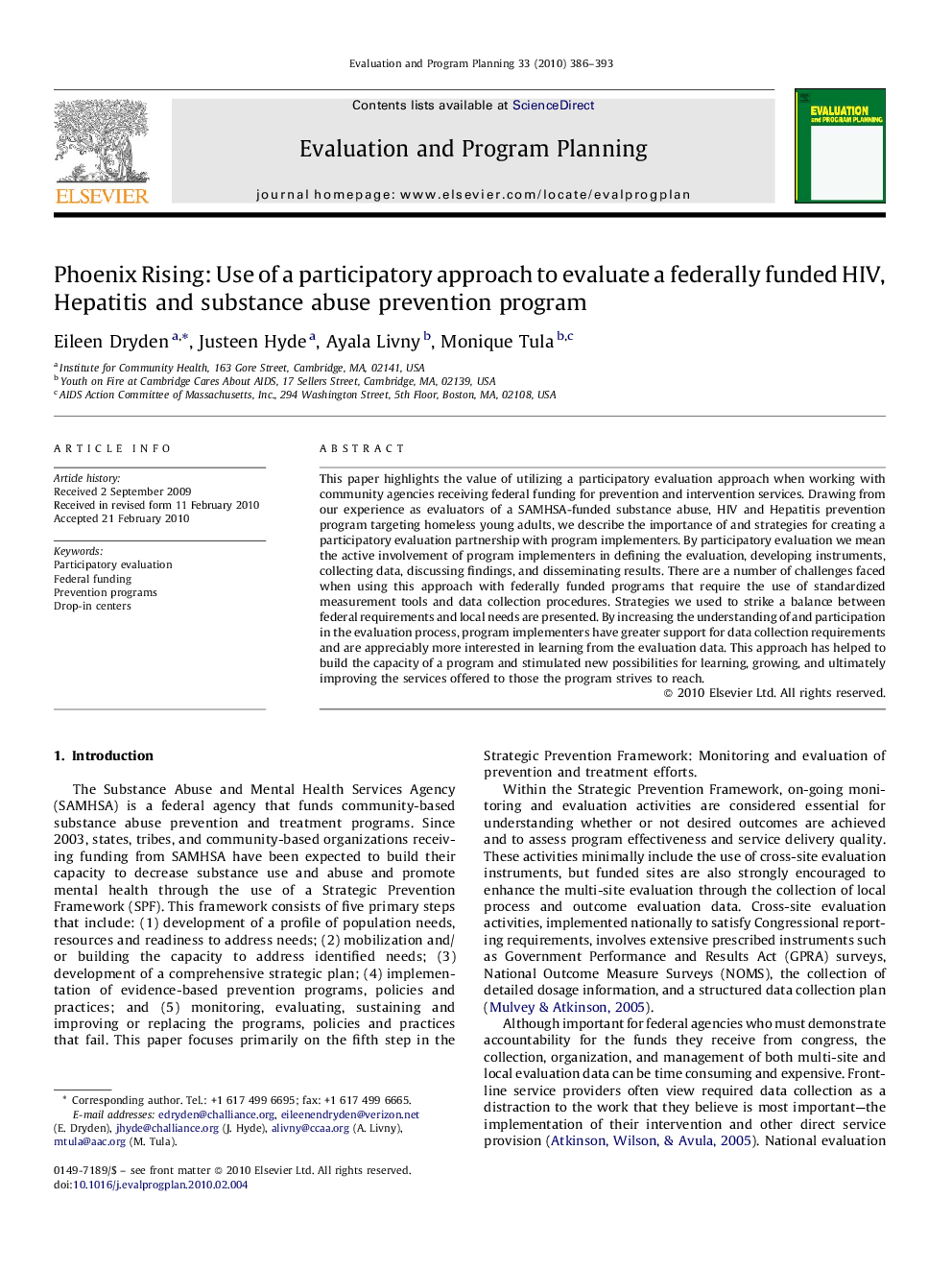| Article ID | Journal | Published Year | Pages | File Type |
|---|---|---|---|---|
| 322581 | Evaluation and Program Planning | 2010 | 8 Pages |
This paper highlights the value of utilizing a participatory evaluation approach when working with community agencies receiving federal funding for prevention and intervention services. Drawing from our experience as evaluators of a SAMHSA-funded substance abuse, HIV and Hepatitis prevention program targeting homeless young adults, we describe the importance of and strategies for creating a participatory evaluation partnership with program implementers. By participatory evaluation we mean the active involvement of program implementers in defining the evaluation, developing instruments, collecting data, discussing findings, and disseminating results. There are a number of challenges faced when using this approach with federally funded programs that require the use of standardized measurement tools and data collection procedures. Strategies we used to strike a balance between federal requirements and local needs are presented. By increasing the understanding of and participation in the evaluation process, program implementers have greater support for data collection requirements and are appreciably more interested in learning from the evaluation data. This approach has helped to build the capacity of a program and stimulated new possibilities for learning, growing, and ultimately improving the services offered to those the program strives to reach.
